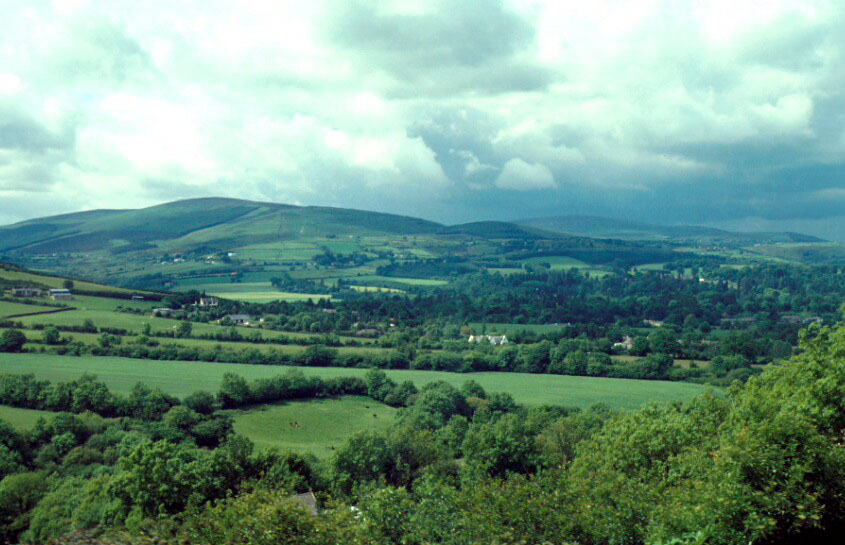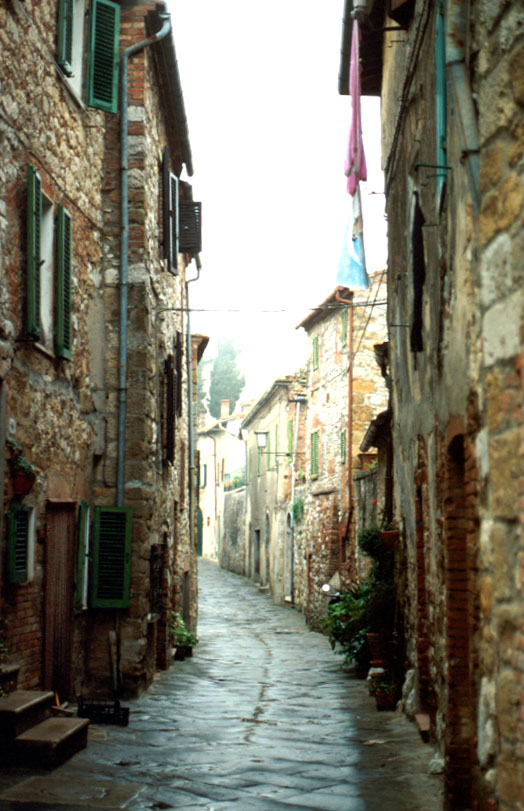We constructed the virtual Italian Hill town on a 2021 workstation. We borrowed features from Perugia and Orvieto. You could put on the 3D glasses with ear speakers, don the VR gloves and slippers, and then flit around the virtual town, looking down little alleys and gazing out over the fields toward a pretty set of fields and fractal mountains we had created (but which weren't accessible). We hadn't been able to do smells, and the touch of the stones wasn't as realistic as we would have liked, but we judged the modelling a success.

We had to ban some students who wanted to use the streets of the virtual town as a setting for a shoot-em-up game, and then we settled down to some serious testing. We walked and judged views; we measured tactile effects. We had simple visual avatars for our presence, so we could see our other explorers. We thought the surroundings were pleasant, so we tried holding a few team or departmental meetings in the virtual space. The meetings did not go well, though, because people were more interested in the textures and views, and wouldn't concentrate on the meeting. So we decided that while the virtual town was a success as a 3-d modelling exercise, it wouldn't work as a place to "live."
What we didn't know was that the students who had wanted the town as a setting for their game had copied the software and were secretly running a duplicate of the virtual town, using processing distributed over several campus computers, and VR glasses and gloves "borrowed" from the labs. They played their game and they extended the model to include some of the surrounding countryside out toward the mountains. They also improved the rudimentary avatars so that the players could be more expressive and flexible while in the town. After making these improvements, and as the weeks of game play went by, some of the players became bored with the game. But they liked the environment. They held talks in the town square about how to enliven the game, then decided to declare part of the town off-limits to the game. That side of town began to be used more, for discussions, trading, the creation and sharing of artworks. As time went on, the Italian architecture began to work on the users, influencing their moods and the kinds of activities they engaged in.

The next big event came when the students began to let people in from around the net. The density of activities in the town increased, but the atmosphere and the customs established by the students continued to hold. Our demo project had became a place. We didn't know anything about this until one of us found the mutated town by accident when she misspelled a command. She logged into what she thought was the model, and was astounded to find the central square occupied by a market thronged with people selling artworks, software, and historical novels.
When we announced that we had found the duplicate model, we were invited to its city hall, and after that discussion we moved the new town to faster computers and settled in ourselves. The virtual town had developed its own culture; the activities weren't particularly Italian, but the grammar of the place had certainly been affected by the kinds of spaces and the texture of the architecture. Some activities had been borrowed from what people thought ought to go on in a place like that, but then the activities had mutated -- for instance, one part of the town was set up as a museum for community art works and replicas of famous sculptures, but these were also used as bulletin boards for community announcements and dialogue. Which art work you posted your note on was a social choice of some importance. The town had also acquired some features that took advantage of its virtual status: some of the sellers in the market, for instance, used little bots that showed up as pigeons spying on what was going on at other stalls, and some of the houses had elaborate insides connecting to other places in the town in "impossible" ways.
It was exciting to see architectural influence on social grammar* develop in a pure state.
(c) David Kolb, 1 August 2001